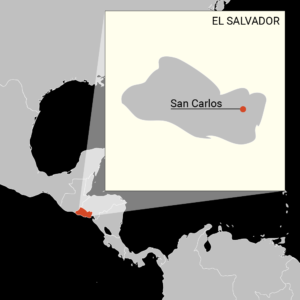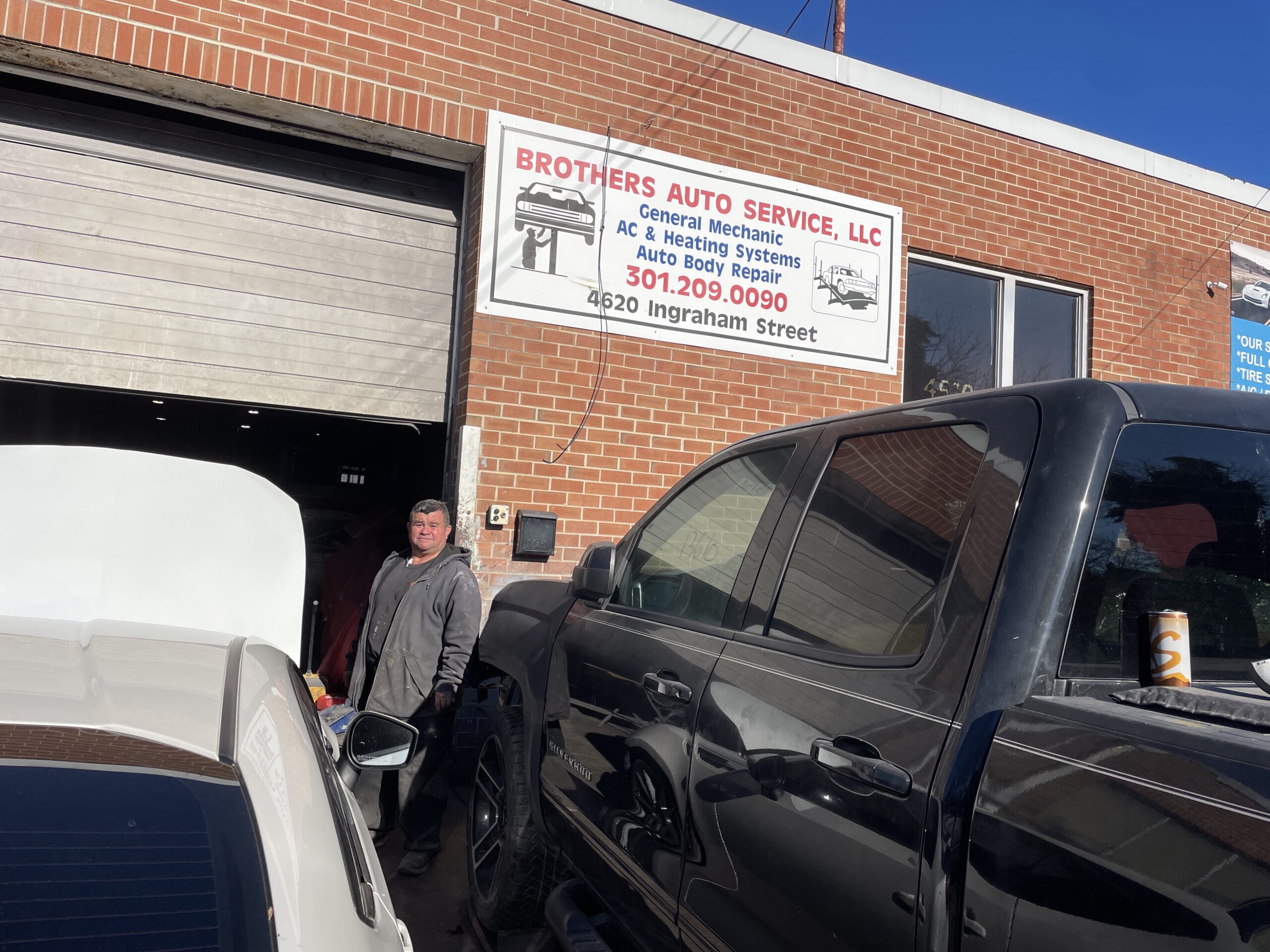
To the sound of Spanish music and the smell of gasoline, Luis Rodriguez’s grease-caked hands fix battered cars and broken down trucks at Brothers Auto Service in Hyattsville, Maryland, where wrenches turn from before dawn to after dusk.
Trying to schedule appointments is easy. “I am always here,” Rodriguez, 64, said with a smile.
Since the Salvadoran civil war four decades ago, nearly 1.3 million Salvadorans like Rodriguez have come to the United States seeking safety from a conflict and its aftermath that is now long-forgotten by many Washington decision-makers but always present for those whose lives were changed forever.
Roughly 200,000 Salvadorans are now part of the rich multicultural fabric of the Washington region. Though most Salvadorans here continue to suffer the separation from family and friends, they were the lucky ones in a guerrilla war that claimed 75,000 lives.
In daily calls home to relatives still living in small, impoverished villages, Rodriguez, like other Salvadorans of his generation, hears echoes of the violent legacy that helped create political instability and allowed gang warfare an enduring foothold.
Luis Rodriguez’s sister, Maribel Rodriguez, lives in San Miguel, 15 miles from the small village in the Morazán district where she and Luis Rodriguez grew up.
The notorious MS-13 gang, founded by Los Angeles inmates returned to El Salvador under the Clinton administration, continues to terrorize her tire-and-rim business, demanding bribes in exchange for safety, she said in a recent interview with Capital News Service.
Maribel Rodriguez said she would “pay and pay so they [didn’t] harm my family.”
San Carlos, where the Rodriguez siblings grew up, is a small rural town where many residents practice subsistence farming. When Rodriguez lived there, educational opportunities were limited.
“I never went to school in my country — never,” Luis Rodriguez said. But now, things are changing and school is available to children there.
Luis Rodriguez regularly sends money home. His contributions were a tiny part of the $623.7 million a month that Salvadorans in the United States sent home in September alone, according to the latest figures from the Central Reserve Bank of El Salvador.
During the war, the predominant guerilla group, the Farabundo Martí National Liberation Front, or FMLN, recruited heavily in Rodriguez’s area. Rodriguez said members of the group frequently appeared near his village in 1983 and kidnapped him to fight for their cause.
The FMLN accommodations were unconventional and Luis remembers being well-treated. “It was all underground but completely well illuminated,” he said. “It was even better than a hospital in the United States…. There were medics. There was everything.”
He escaped but was kidnapped repeatedly by various guerilla factions over the next year before joining the Salvadoran military because he had heard rumors that he could acquire a U.S. visa that way. “But it was a fraud, all a bunch of s—. So, instead of staying there, I came here by myself,” he said.
By the time Rodriguez left El Salvador in 1985, he had lived in a state of conflict for nearly five years.
Rodriguez joined his brother already living in the United States. He worked in construction until an accident forced him to learn a new trade. Eventually, the boy who learned about agriculture and animal husbandry from his father in San Carlos learned how to fix even the most difficult automobile problems. Here his family lives a peaceful middle-class life in safe, suburban Maryland.

Thirty years after the war ended, El Salvador, with a population of 6.5 million, has one of the highest murder rates in the world – 52 murders per 100,000 residents.
Over a 3-day-span in March, 87 people were killed by gangs. It was the most violent weekend since the civil war. In response, Salvadoran President Nayib Bukele imposed a national state of emergency in what he said was an effort to crack down on crime.
The state of emergency gives police more discretion to arrest those they accuse of gang activities, increases prison sentences for gang membership, restricts citizens’ freedom of assembly and imposes a blackout on gang-related news. Journalists who report on gangs can be imprisoned.
Human rights activists and many international organizations have condemned Bukele’s state of emergency, saying it erodes constitutional rights and does not grant accused suspects due process.
But Bukele’s popularity within the country has soared, as it has at Brothers Auto Service in Maryland.
Luis Rodriguez said that until this year his family in El Salvador lived in fear of gang violence. Gangs would extort businesses, requiring them to pay in exchange for safety. Gangs would say, “You have to give me $400 a month,” he said, for “no reason.”
In San Miguel, random young men would approach Maribel Rodriguez and force her to talk on their cell phones with MS-13 gang bosses, she said. They demanded payment and threatened to harm her family if she reported them to the police.
She said she had no choice but to comply.
“We paid every month [until] the government put a very strong emergency regime law [in place]. They captured all those people five months ago,” she told CNS. ”We no longer pay and are very well now. A month ago, we opened a third [automotive] business.”
Now married with two adult children, Luis Rodriguez settled into the daily grind of business ownership years ago.
Poking his head from under a battered car hood, he waves a hand toward his son, who immediately runs over from the front of the garage to the gritty inside where his father works.
Luis Rodriguez’s son, “Junior” Rodriguez, 27, said he grew up in awe of his father.
“He came here not knowing English and he’s here with an essential business,” Junior Rodriguez said of his father. “He wanted us to go to school, go to colleges, so we’re not busting our asses like he is,” he said. “He wants us to be at a steady office or work for a big company where you don’t have to work the 10-, 12-hour days [to] get a fair amount of salary.”
Shivering early on a recent morning, Luis Rodriguez said that he still longs to return home. He plans to retire on beach property he bought along the Salvadoran coast.
“You can look [at] Honduras, Nicaragua,” he said. “You can see the fish run.”

You must be logged in to post a comment.